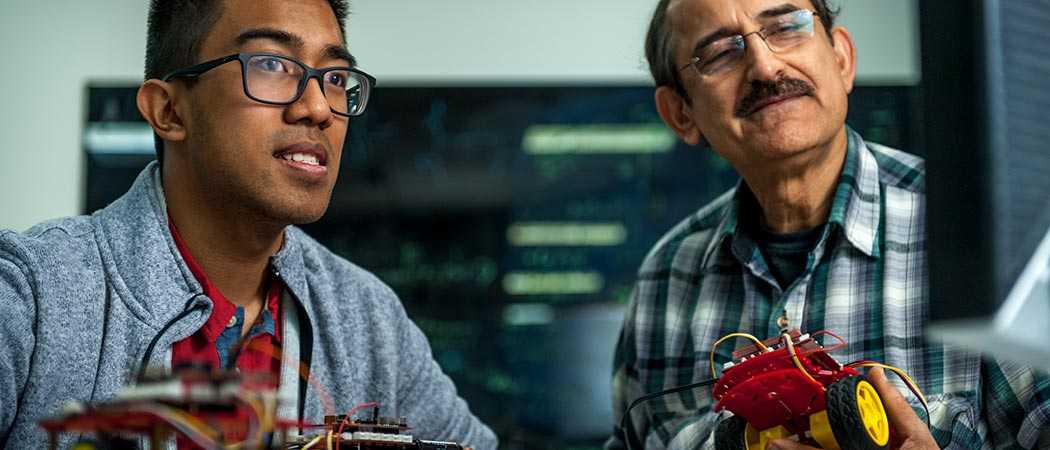How best to teach STEM? As part of its $200 million investment in STEM education for pre-K through postdoctoral studies nationwide, U.S. Department of Defense (DoD) STEM convened a half-day virtual workshop to share knowledge and encourage interaction among representatives from more than one hundred industry, academic, governmental, and non-governmental organizations about best practices for improving educational experiences for students and teachers. The DoD supports STEM education as part of its commitment to building a diverse and agile workforce, strong in the technical skills required for the 21st century.
Sponsored by the Office of the Under Secretary of Defense in Research & Engineering, the workshop focused on three areas of utmost importance to DoD: enhanced civics education; biotechnology education and workforce development; and STEM education, outreach, and workforce needs. The workshop also promoted the Request for Information (RFI) recently issued by the National Science and Technology Council’s Committee on STEM Education as it relates to the Federal STEM Education Strategic Plan. Responses to this RFI “Charting a Course for Success: America’s Strategy for STEM Education” are due October 19, 2020.
CIVICS
The civics discussion revolved around sharing effective and meaningful ways to help students become more engaged in civics courses and programs and exploring new developments in civics curricula. Participants shared examples of well-received classroom activities, team projects, internships, or community service activities relating to civics, as well as the importance of finding ways for students to interact with local officials, plus witness and participate in government at work. The DoD plans to establish a pilot program to enhance civics instruction and focus on improving critical thinking; media literacy; knowledge of voting procedures; and understanding of U.S. law, history, and government; as well as collaborating and compromising with others to solve problems. A lively discussion covered the relationship between STEM and civics and the importance of supporting the creation of an ethical STEM-engaged society and culture.
BIOTECH
The biotech discussion centered around the reality that biotechnology is in everything we do and how important it is to introduce this concept as early as possible. Increasing understanding that biotechnology is an engineering discipline that uses living systems to produce a wide range of technologies and products can emphasize the importance of this field of study, as well as the innumerable career opportunities available in this space. The DoD aims to build out a workforce that is fully capable of analyzing, developing, and fielding novel biotechnologies.
In addition to biotechnology, participants learned that the DoD has focused its technology modernization priorities into 10 other critical areas: hypersonics, cyber, space, directed energy, networked communications, microelectronics, 5G, autonomy, quantum science, and artificial intelligence.
DoD STEM
DoD STEM is the organizational body within the DoD that provides funding and guidance for hundreds of educational outreach programs, internships, and scholarships nationwide. The SMART Scholarship for Service is a prime example of the DoD’s commitment to developing future STEM innovators. SMART scholars receive full tuition, living expenses, and internships during college or graduate school while committing to join a DoD laboratory after graduation as a full-time employee. The United States has 60 defense laboratories and centers across 200 locations with around 300,000 STEM professionals, making the DoD by far the largest STEM employer in the government.
Details about SMART and many other programs supported by DoD STEM can be found throughout this website.
In closing, the virtual workshop supported the DoD’s mission to create a STEM talent pool with minds for innovation, diversity of thought, and technical agility to sustain the Department’s competitive edge. As shown throughout this website, the DoD aims to attract, inspire, and develop exceptional STEM talent and it invites you to learn more about the many programs, internships, and scholarships supported by DoD STEM.
The presentation shared during the workshop is available here.
